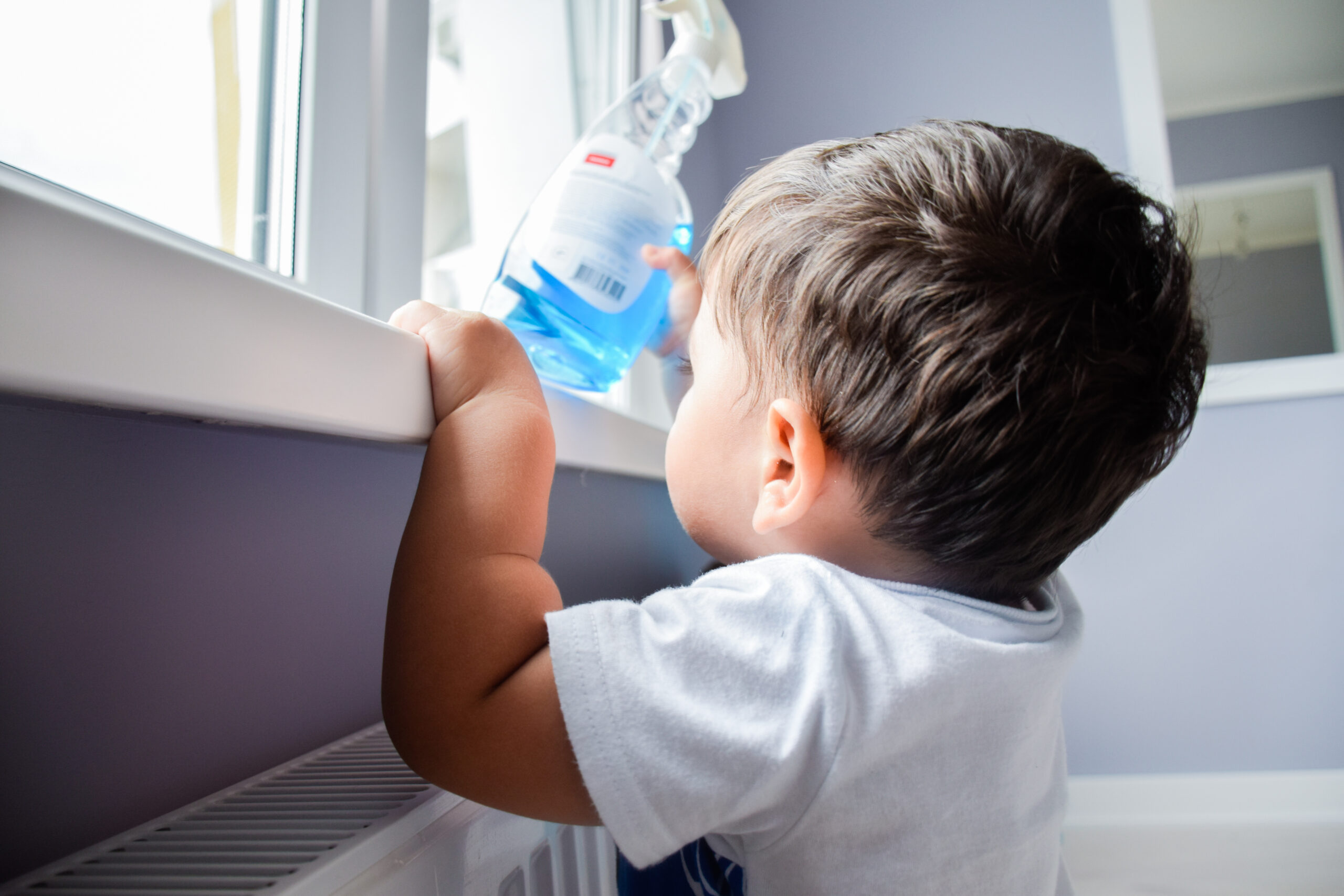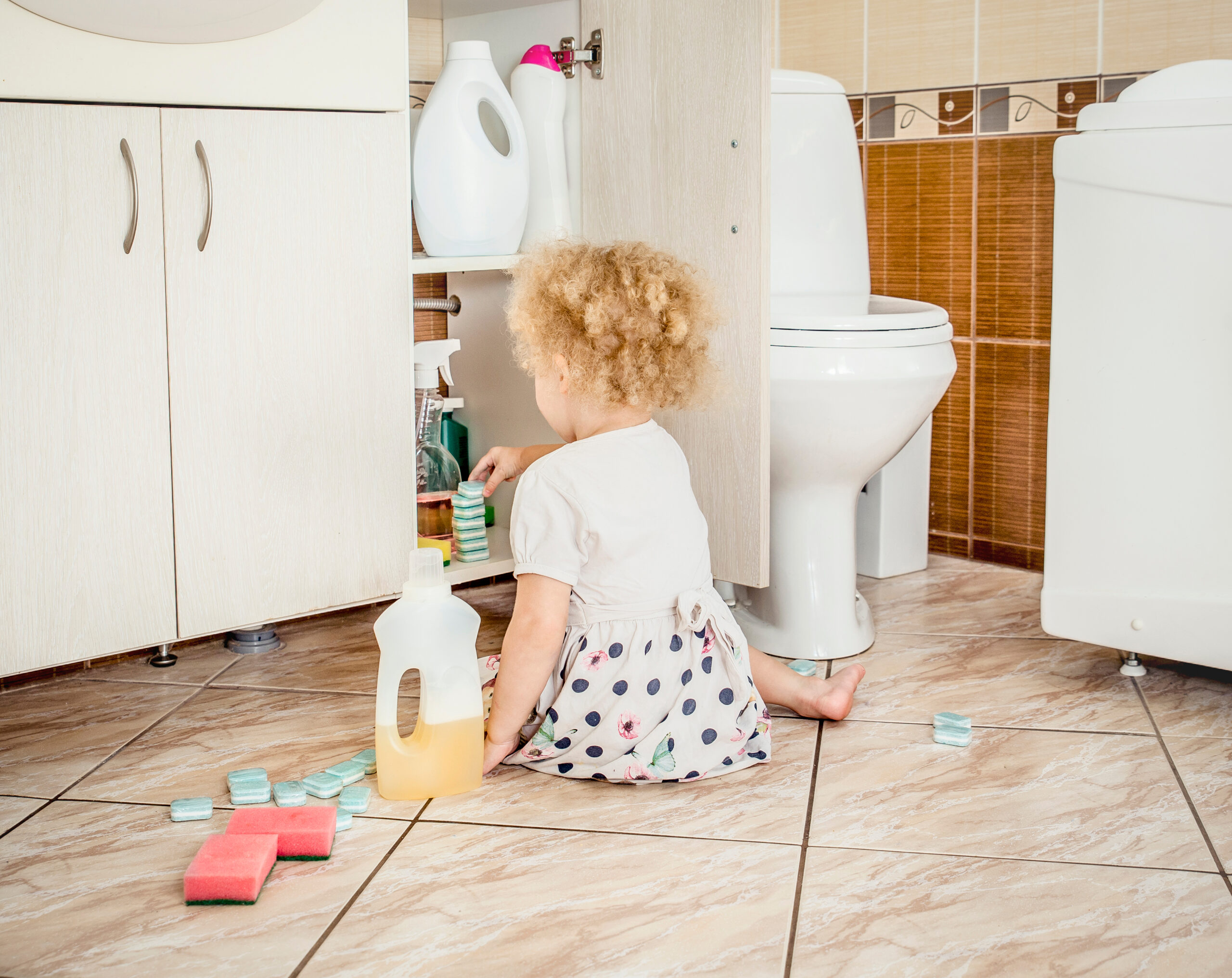What to do if your child accidentally swallows poison – Little Explorers, Big Dangers
We cherish their boundless curiosity, however, as parents and caregivers, we also know that curiosity can sometimes lead to trouble. Especially when it comes to accidental poisonings. In Singapore, with our busy lives and compact homes, many toddlers and young children are particularly at risk, often putting things in their mouths before we can react.
Prevention: Our first line of defense
Cleaning supplies, medicines, and other hazardous items are often within reach – under kitchen sinks, in bathrooms, and even in handbags. Whilst child safety caps offer some protection, they are not always effective, as many four-year-olds can open them. To prevent these accidents, remember these key steps:
How to safeguard your toddler (or child) against common medicines:
- Never refer to medicine as candy: This teaches children a dangerous association.
- Teach children about the dangers of poisons: Explain what they are and why they are harmful.
How to protect your toddler (or child) against everyday cleaning products and chemicals in the home:
- Store all chemicals and medicines out of reach and sight: Locked cabinets are best.
- Never leave chemicals unattended: Even for a moment.
- Keep products in their original containers: This prevents confusion and misidentification.
- Follow label directions carefully: This ensures proper usage.
- Avoid mixing household chemicals: This can create toxic fumes.
Whether it’s something ingested, inhaled, or absorbed through the skin, accidental poisoning can be a critical emergency. Staying calm and acting quickly can make all the difference.
Here’s what to do:
What to Look for when your child has swallowed or come into contact with a poison:
- Common Symptoms: Nausea, vomiting, dizziness, agitation, fluttering in the chest, tummy pain, seizures, drowsiness, or loss of consciousness.
- Other Clues: Burns, stains, or unusual odours around a child’s mouth.
If your child is conscious, do this:
- If they’ve swallowed something, get them to spit it out.
- For skin or clothing contact, remove contaminated items and rinse immediately with water for at least 15 minutes.
- Never give them food or drink.
- Go to the Accident & Emergency department.
- If your child is well and you believe they are not in any immediate danger, you can contact the Singapore Non-Emergency Poison Information line for further advice: +65 6423 9119.
If your child is unconscious, do this:
- Call 995.
- Try to wake them and get them to spit out anything remaining.
- Do not put your hand in their mouth or induce vomiting.
- Place them in the recovery position.
- If they’re not breathing, start CPR.
Crucial Information you will need for the Paramedics/Accident & Emergency
- Substance ingested (bring the container, if possible).
- Time of ingestion.
- How it was ingested (swallowed, inhaled, etc.).
- Amount ingested (if known).
- Child’s age and weight.
- Symptoms experienced.

Accidents happen, and even the most vigilant parents can’t prevent everything. The most important thing is knowing how to act quickly and calmly. First aid knowledge is a powerful tool that helps you protect children in emergencies.
Take control and be prepared by joining one of our comprehensive first aid courses in Singapore. Book your spot now and learn how to handle any situation with confidence.
Prefer a more personalised experience? We’re happy to bring the training to you! Contact us today to arrange a private first aid course in the comfort of your own home.
Remember: This is just general information. If you’re ever worried about your child, talk to a doctor.

